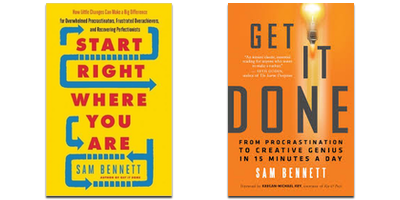Ever stared at a blank page, the weight of “what if nobody buys it?” crushing your creative spirit? We’ve all been there. The thought of pouring your heart and soul into a book, only to see it languish on shelves (or worse, in your garage), is enough to make any aspiring author hesitate.
Let’s face it, the statistics can be daunting. “Most books sell between 200-2000 copies, total,” they say. It’s a sobering thought that can easily paralyze your writing ambitions. But what if I told you there’s a way to flip the script? What if you could actually generate income from your book idea before you even write a single chapter?
Yes, it’s possible. And no, it doesn’t involve some magical, overnight success scheme. It’s about strategically leveraging your expertise, building genuine connections, and validating your book’s potential in the real world.
Here’s how you can make money from your book idea before it’s published:
1. Cultivate a Community: The Power of a Writer’s Group
Think of it as a modern-day salon, a safe space for writers to gather and support each other. Here’s how to make it work:
- Gather Your Tribe: Invite 5-10 aspiring writers who share your passion.
- Create a Dedicated Space: Establish a regular meeting time, whether online or in person.
- Charge a Nominal Fee: This ensures commitment and provides you with a steady income stream. Think of it as a “community contribution” rather than a fee.
- Focus on the Container, Not the Curriculum: The value lies in the shared experience, the accountability, and the community.
Why it works: People crave connection and structure. You’re providing a valuable service that they’re willing to pay for, creating a win-win situation.
2. Turn Your Expertise into Gold: Live Talks and Trainings
Your book idea is built on your knowledge and experience. Share it with the world through live presentations.
- Identify Your Core Message: What’s the one key takeaway from your book?
- Craft a Compelling Presentation: Develop a talk that’s engaging, informative, and actionable.
- Seek Out Opportunities: Approach local organizations, businesses, or community groups.
- Offer Value Beyond the Talk: Consider selling related products or services, such as worksheets, ebooks, or coaching sessions.
Why it works: You’re showcasing your expertise, building your credibility, and connecting with potential readers on a personal level.
3. Reach a Global Audience: Evergreen Online Content
The internet offers endless possibilities for sharing your knowledge.
- Create Video Content: Develop engaging videos for platforms like YouTube, TikTok, or LinkedIn.
- Build Online Courses: Share your expertise through platforms like Udemy or Skillshare.
- Leverage LinkedIn Learning: Create in-depth training courses that can generate passive income.
Why it works: You can reach a wider audience, generate passive income, and establish yourself as an authority in your field.
4. Build Your Tribe: The Power of Email Marketing
Email remains one of the most effective ways to connect with your audience.
- Choose an Email Marketing Platform: Select a user-friendly platform like Mailchimp or ConvertKit.
- Create an Irresistible Opt-in Offer: Offer a valuable freebie, such as an ebook, checklist, or guide.
- Provide Consistent Value: Share engaging content that resonates with your audience.
- Leverage Affiliate Marketing: Promote relevant products or services to your email list.
Why it works: You build a direct line of communication with potential readers and can promote your book and related offerings.
5. Amplify Your Reach: Strategic Partnerships
Collaborate with other writers, professionals, or influencers in your field.
- Host Joint Events or Workshops: Partner with others to create engaging events.
- Create Online Summits: Interview experts in your field and share the recordings with your audience.
- Engage in Affiliate Partnerships: Promote each other’s products or services.
- Guest on Podcasts: Share your expertise with new audiences.
Why it works: You leverage the existing audiences of your partners and expand your reach exponentially.
The Time to Act Is Now
Don’t let fear hold you back from sharing your unique voice with the world. By implementing these strategies, you can generate income, build an audience, and validate your book idea before you write a single chapter. The world needs your story. Are you ready to share it?







